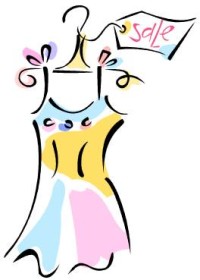We often have sayings, biases, and assumptions that are built and reinforced over time. For example, we often assume that a higher price means higher quality. We also assume that most people are sensible and will figure out a cheap scam so if a product is priced incorrectly, it won’t last long.
But is this always true? Sometimes we can be fooled by the context around something, rather than trusting our seasoned experience tasting, smelling, seeing and feeling. Here’s an example taken from Paco Underhill’s book “Why we Buy: The Science of Shopping”. Paco is talking about merchandising – how products can be displayed in retail stores to maximize profit:
Padding Store Profits off of Young Women
“…a talk given by the vice president of merchandising from a national chain of women’s clothing stores….(she said) We buy them in Sri Lanka for $3 each. Then we bring them over here and sew in washing instructions, which are in French and English. Notice we don’t say the shirts are made in France. But you can infer that if you like. Then we merchandise the hell out of them-we fold them just right on a tasteful tabletop display, and on the wall behind it we hang a huge gorgeous photograph of a beautiful woman in an exotic locale wearing the T-shirt……Then we call it The Expedition T-shirt and sell it for $37.”

Challenge the Price Assumption
Wow. For $3, even if the sewing is expert, the material has got to be cheap. The store is making an incredible margin – from our wallets. Our assumption that a higher price means higher quality probably is, or was, often found to be true and has been passed on to generations. This is a short cut in our thinking that we use to help make decisions faster. And retail stores are taking advantage.
So what do we do about it? Challenge the pricing assumption. Compare quality. Ask questions. Ignore the poster on the wall and focus on the product. Don’t assume that what is being suggested is accurate. It is likely the same T-shirt could be found in a far less appealing store for $10, or $27 less than the price above.
Carrie Rattle is a Principal at BehavioralCents.com, a web site for women focused on the psychology of money behaviors. She has worked in the financial services industry for 20+ years and hopes to inspire women to better prepare themselves for financial independence. Thoughts always welcome: carrierattle@behavioralcents.com.

Carrie Rattle is a Principal at BehavioralCents.com, a website for women focused on mind and money behaviors. She has worked in the financial services industry for 20+ years and hopes to inspire women to better prepare themselves for financial independence.
